‘He Was a Disrupter, a Rule Breaker’: Jared Harris and Director Adrian Sibley on Venice Documentary ‘The Ghost of Richard Harris’
- Oops!Something went wrong.Please try again later.
- Oops!Something went wrong.Please try again later.
- Oops!Something went wrong.Please try again later.
- Oops!Something went wrong.Please try again later.
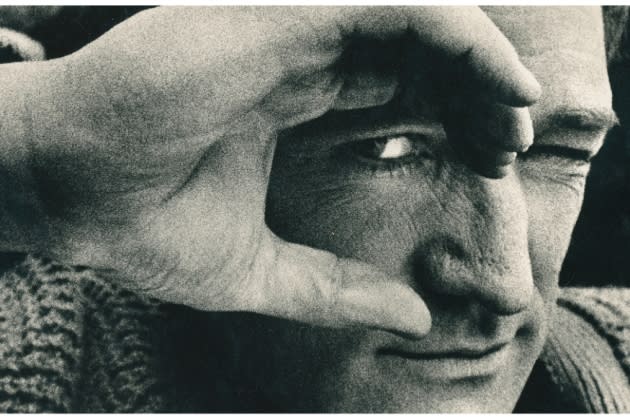
Feature documentary “The Ghost of Richard Harris,” which premieres Sunday at the Venice Film Festival, looks to answer the question: “Who was Richard Harris?” The film also contains the revelation that Harris was offered the role of Gandalf in Peter Jackson’s “Lord of the Rings” movies, but chose to take the part of Dumbledore in the “Harry Potter” franchise instead.
Variety spoke to director Adrian Sibley and Richard Harris’ son Jared Harris – a distinguished actor himself, and one of the originators of the project – about how the documentary came to be made.
More from Variety
Sibley first broached the subject of making a film about Richard Harris some 20 years ago with the man himself, who responded: “I’ll do it, but only if I can tell the truth half the time,” Jared Harris recalls.
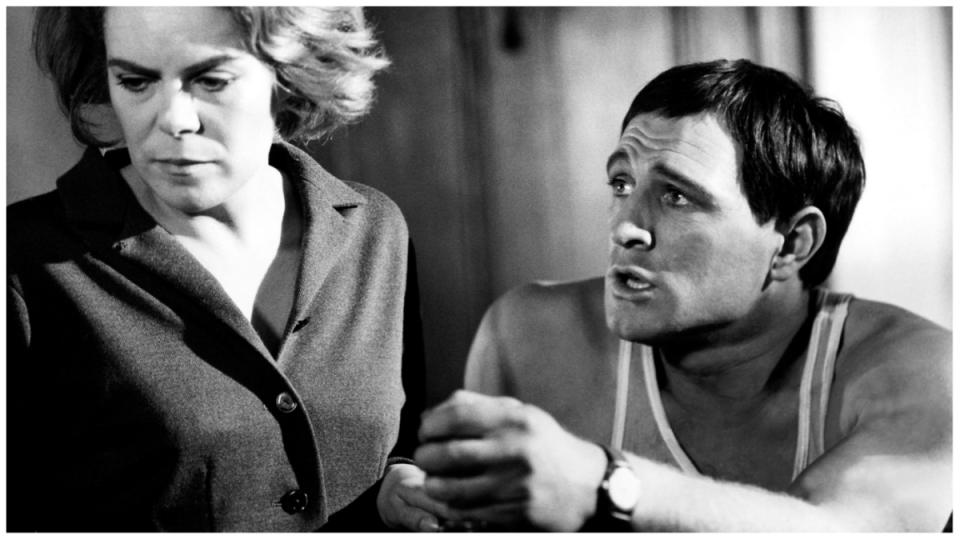
Sibley liked this idea but the BBC – who he pitched it to – were less keen. “The BBC were questioning my integrity that we could do a documentary that wasn’t true,” he says. “They were going: ‘What do you mean, he’s not going to tell the truth?’ And I said, ‘Well, that’s the whole thing about Richard Harris: What makes him interesting is how he plays with who he is.’”
Sibley had been introduced to Harris by another of his three sons, director Damian Harris, whose eye had been caught by Sibley’s documentary on Anthony Hopkins. Sibley told him: “Look, I’ve always been interested in your father, because, actually, he isn’t who he says he is. And if he is who he says he is, he’s also somebody else.”
Sibley’s meeting with Harris at the Savoy Hotel, where the actor lived at the time, was not a comfortable experience. “Richard was disturbing for a journalist. Probably the closest encounter I’d had was with Jerry Lee Lewis, who I interviewed for The Guardian, and who was very nice to me and sang me ‘Breathless,’ but then hit a guy called James Kent straight afterwards,” he recalls. “And Richard had the same sort of visceral … you kind of knew that if you said the wrong thing, you’d be out of there pretty quickly, it wasn’t going to be a nice journalistic, roundtable chat.”
Sadly, the collaboration was not to happen as Harris died in 2002, before it could proceed, but, Sibley says: “The engagement was fascinating, and he got into my head.” The director had made films about a range of showbiz figures, such as Baz Luhrmann and Dino De Laurentiis, but it was Steve Martin who came to mind when sizing up Harris, because “he’s definitely not who he says he is either, in many ways, and has complexity.”
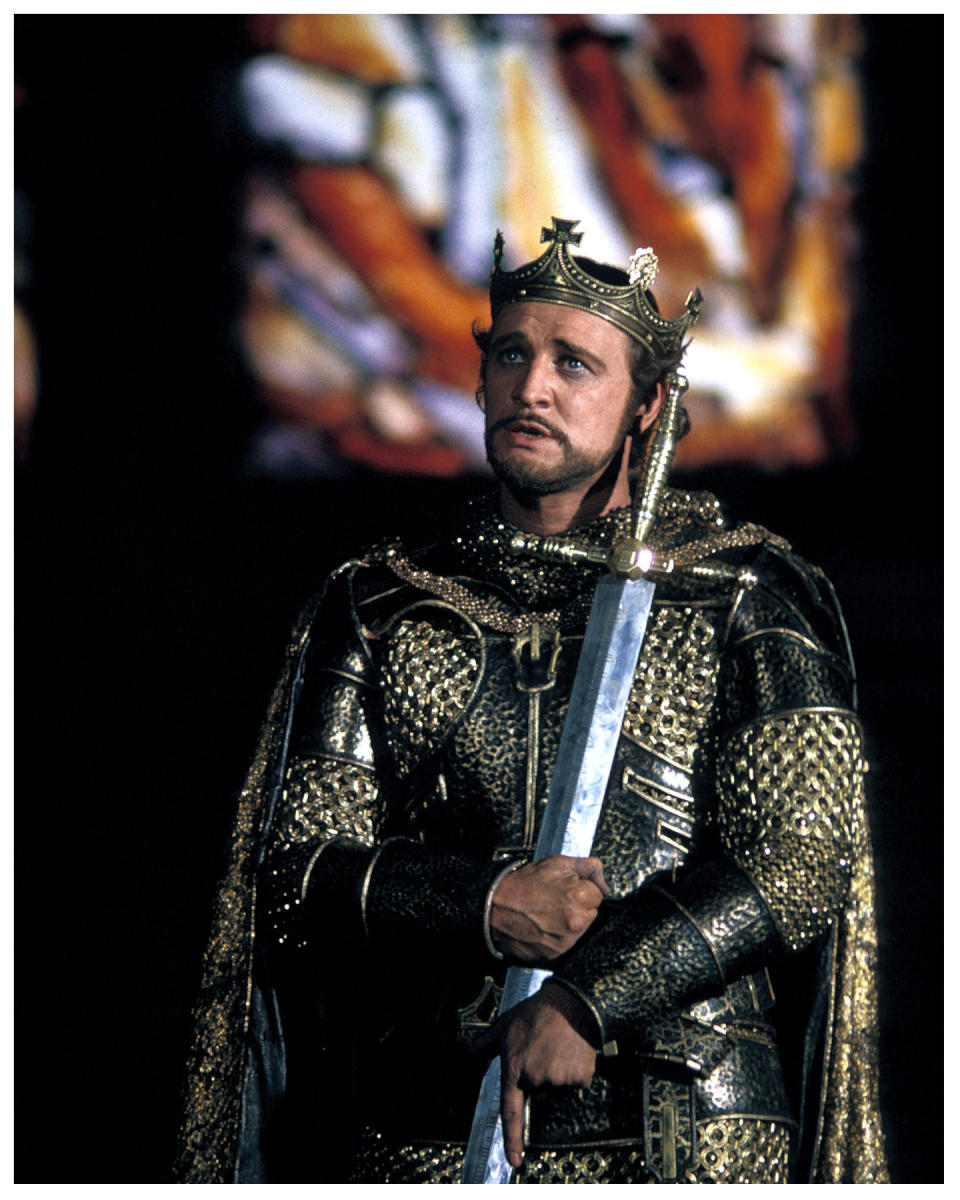
Through his friendship with Damian, Sibley got to know Jared, who was “slightly lamenting that the doc never had come off,” Jared says. Their thoughts turned to how it could be revived without the central character. Sibley’s answer was to focus it on the three sons: Jared, Damian and Jamie, also an actor. “At that point, we just didn’t want to take center stage in our father’s story, so we kind of balked at that one,” Jared says. “But then Adrian absolutely doggedly pursued this process, this goal of trying to put this film together, and find original IP for it.”
By then it was 2015, and Sibley came across a series of audio interviews that journalist Joe Jackson had conducted with Harris over a period of 15 years for a biography the actor had commissioned, but was as yet unpublished. These he combined with fresh interviews with Harris’ close friends and associates, like Russell Crowe, Stephen Rea, Jimmy Webb, Jim Sheridan and Vanessa Redgrave, and unseen family footage shot by Harris himself from the family’s archive, and recently discovered Super 8 footage from his childhood.
Sibley preferred these sources to the numerous appearances that Harris had made on chat shows hosted by Johnny Carson, David Letterman and their ilk.
“The Richard that I had the opportunity to meet, I didn’t see him in the interviews, you know, I didn’t see him in the endless Carson stuff, the Letterman stuff, the stories. I was much more interested in this Irishman who had tried to assert his Irishness on English theater,” Sibley says.
The film covers his ground-breaking stage work with collaborators like Joan Littlewood and Lindsay Anderson, followed by his breakthrough performance in Anderson’s film “This Sporting Life.” “Richard was this very powerful physical actor, and had hit the West End with huge impact,” Sibley says. “But he also was looking to fuck people over, and had that affair with Princess Margaret. I loved the idea that this guy was not only looking to take over theater, but he was actually getting into the bed chamber of the royals, which is quite amazing for a guy from Limerick.”
Jared says that when he is doing press interviews for shows, he is often asked about his father, but the questions are usually about his father the drinker and hellraiser, not his father the actor, poet, singer and producer.
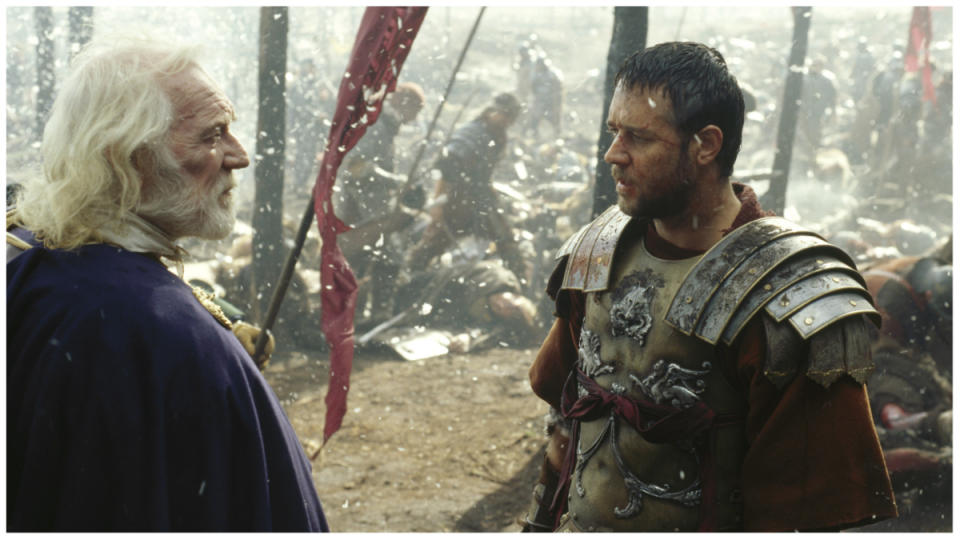
One condition that Jared and his brothers laid down was that his father would be portrayed with respect. “We agreed that we would be absolutely truthful with Adrian, and that we would rely on Adrian to be respectful. I mean, not to rewrite history or anything, but to treat him respectfully,” he says.
There are some similarities between the film and Andrew Dominik’s Venice competition title “Blonde,” in which Norma Jeane is seen to become Marilyn Monroe. “Yeah, my father often said that the greatest part he ever played was Richard Harris. And he was aware on one level that it was a construction of an image, if you like, not a personality, so much as an image. And one of the things that Damian said, not long after Dad died, was that he had promoted that image to the detriment of his career, because people started to dismiss him,” Jared says.
He recalls being at a London dinner party when an Australian woman asked which production she should see in the West End. Someone suggested Pirandello’s “Henry IV.” The woman, who didn’t know who Jared was, asked pointedly: “Isn’t that the one with Richard Harris? Does anyone take that man seriously anymore?” There was a deathly silence at the table, Jared recalls.
Nevertheless, Richard Harris continued to promote himself as a hellraiser because he felt it would sell newspapers and magazines, generate bigger audiences for chat-shows, and so help sell more tickets for his stage shows and films, and prolong his career.
Sibley adds: “The other thing is he was a complicated guy, and there were different levels to him, and he adopted different people at different times. That’s what I found fascinating, because I’m aware of people that have this drive to create themselves.” He compares the various stages of Harris’ career as an artist to that of Steve Martin, who also repeatedly regenerated himself. “And that drive is in Richard too, but with Richard, it happened like a hinge, it would happen at different times.”
Harris, in turn, went from being the “angry young man” actor in social realist plays, to Hollywood star with “Camelot,” pop star with songs like “MacArthur Park,” and poet.
Jared says: “What I appreciate about what Adrian did, and what his approach was, it wasn’t going to be a sort of plodding through a chronology of somebody’s life. It was an examination of a personality.”
He pushes back the suggestion that his father was “tormented.” “There was a restlessness to him, and he would get bored, you know. When we’d go on holidays together, he loved it for three days. And after three days, then he started to… the expectation and the familiarity and the repetition of it all would start to grate on him, and he just wanted… He’d start an argument just to change things up, just to entertain himself.”
He recalls a large family gathering where his father deliberately started arguments: “He’d bring something up and start a little conflict between people, and then calm them down, so he could be the peacemaker. Then when he got bored with that, he’d start it up again. And I think that’s the reason why Peter O’Toole’s nickname for my father was ‘The Mixer.’”
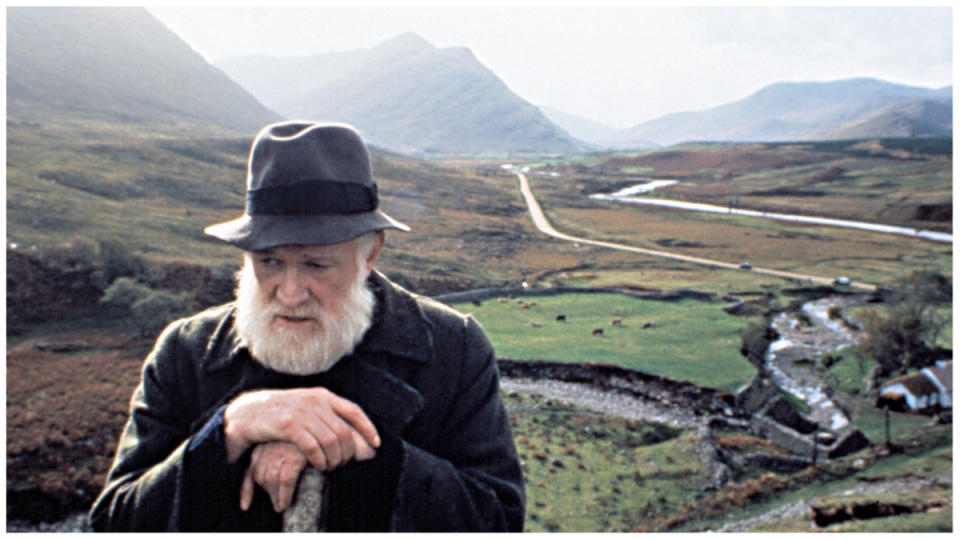
Harris would quickly form fierce relationships with people, and just as quickly would end them, with men as well as with women. Jimmy Webb, the writer of “MacArthur Park,” was one example of a heady bromance that ended badly for Harris. Sibley says: “What happens with that type of maelstrom and focus is it often careers into something else, and causes a rupture because it’s so intense.”
When he fell ill in 2002, and was taken to hospital, shortly before his death, he wasn’t talking to his two best friends in the world, John Heyman and Terry James, Jared says. James was able to come to London, and they made it up, but Harris and Heyman didn’t make it up. “John Heyman read the eulogy at my father’s funeral. And the eulogy was this letter. My father and John would send these furious letters to each other. And this last letter that John had written to my father said: ‘We can’t keep on doing this. You know, we’re getting too old and one of us is going to die during one of these no talkies periods. And what a great shame that would be.’ And he recounted all these wonderful times he and Dad had had, and he didn’t bury the hatchet, but then Dad died before that letter was sent, so he read it at the funeral.”
One myth that the documentary lays to rest is why Harris took the role of Dumbledore in “Harry Potter and the Sorcerer’s Stone.” At the film’s premiere in 2001, Harris said that his grand-daughter Ella had threatened not to speak to him if he turned down the adaptation of the Harry Potter books, which she loved. But in the documentary, she reveals she never said that. He had told Ella, whom he adored, that the other option was to go to New Zealand for three years to make “Lord of the Rings,” and she told him: “That sounds terrible, definitely don’t do that.” The obedient grandfather did as he was told.
Harris was not shy of criticizing the approach to their craft of other actors, such as Ian McKellen, who took the role of Gandalf that Harris declined. “This is one of the things that Dad did constantly throughout his career: he would purposely take on people and targets who represented the status quo, and had to pit himself in opposition to that status quo. And there’s an element of him that was a disrupter. He was a rule breaker,” Jared says.
“And he wasn’t happy if he wasn’t able to challenge whatever that authority was, or that status was, because he didn’t want to be seen as being part of that. But that’s also a sort of paradox, because at the same time, he lived at the Savoy for 20 years.”
Best of Variety
Sign up for Variety’s Newsletter. For the latest news, follow us on Facebook, Twitter, and Instagram.

